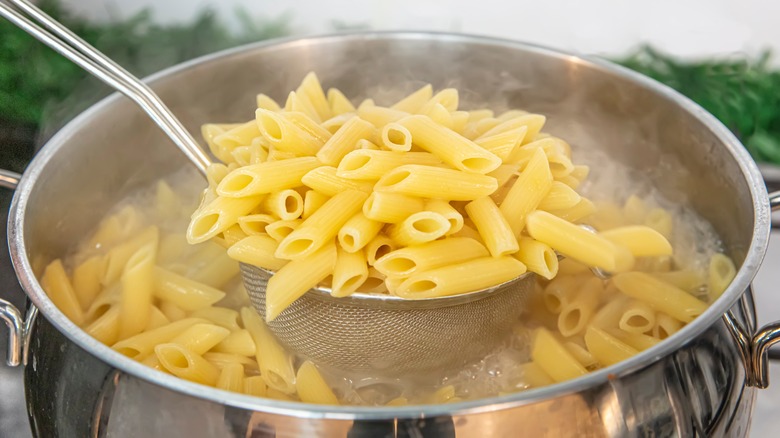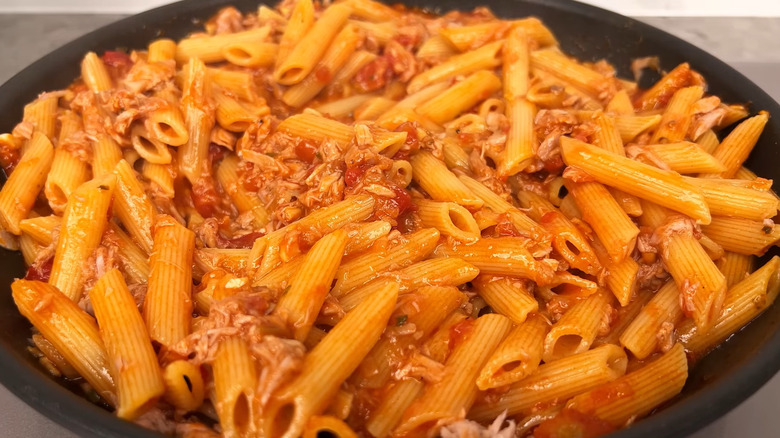The Foolproof Technique For Al Dente Pasta Every Time
Out of all the cuisines in the world, which one do you like the most? If you've ever wondered what's the answer to this globe-spanning question, you're not the only one. An international YouGov survey found that Italian cuisine has been voted the most popular in the world, while its staples, pizza and pasta, are "among the most popular foods in the world." With that in mind, it's no wonder that in 2021, Italian restaurants made up about $70 billion of the restaurant industry (via Statista).
However, it wouldn't be wrong to wonder why Italian food is so beloved worldwide. According to a blogger on Medium, the secret is in the ingredients, which are fresh, local, and natural most of the time, if not always. Besides, Italians are very proud of their food, and as we can see, for a good reason. One of the things that Italian are the proudest of is the humble pasta, which is deeply rooted in Italian cuisine and way of life.
If you're like us and you like to cook pasta for friends and family anytime you get the chance, you've probably heard about the Italian term "al dente." But if you still don't know what it means and why it is important, we're bringing you the foolproof technique for al dente pasta every time.
Try a piece of pasta after eight minutes of cooking
The Italian term "al dente" can be translated as "to the tooth," and it refers to pasta that's cooked to perfection. The Italians consider it the best technique for cooking pasta, and BBC Good Food reveals how to make al dente pasta every time you cook it.
For starters, bring plenty of water to a boil in a large pot or saucepan, add some salt, and after eight minutes, take a piece of pasta out and taste it. If it's perfectly cooked and retains a slight chewiness, it's ready, and if not, try another piece in a minute, and it will probably be perfect. Spaghetti, linguine, and tagliatelle usually cook for eight to ten minutes, while pasta shapes that are a bit shorter and thicker usually take from 10 to 12 minutes to cook. For example, penne will take a bit longer to cook than spaghetti. Of course, fresh pasta takes a shorter time to cook, but you can always look at the packaging, which will tell you the recommended cooking time in most cases.
But there can never be too many Italian pasta tips: If you're cooking long pasta, don't break it before placing it in the pot, per Eataly. Once you've cooked your pasta to al dente perfection, the only thing you'll need is a fork.

